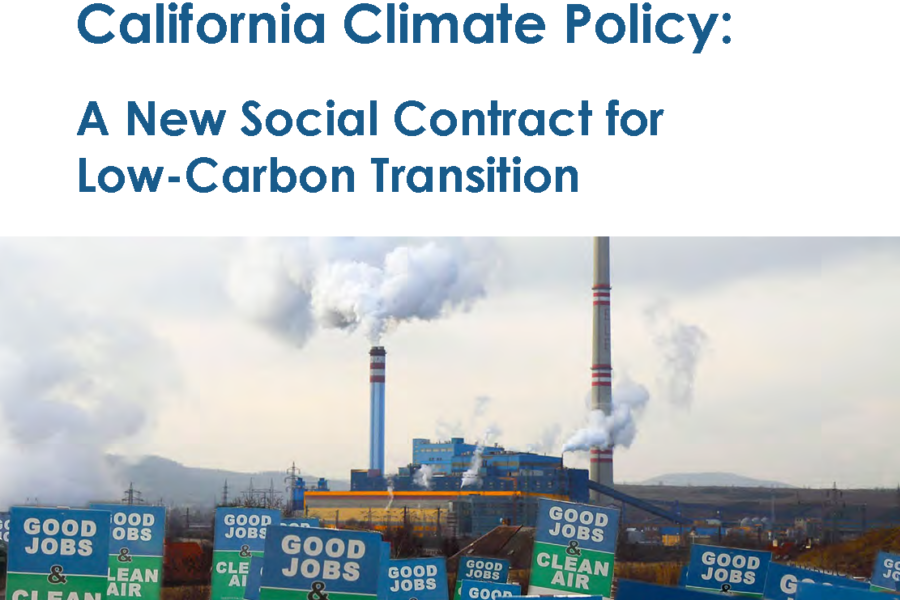September 13, 2016
By Carol Zabin, Abigail Martin, and Rachel Morello-Frosch (University of California, Berkeley); Manuel Pastor (University of Southern California); and Jim Sadd (Occidental College)
Please note: reports dated earlier than June 2020 were published under our previous names: the USC Program for Environmental and Regional Equity (PERE) or the USC Center for the Study of Immigrant Integration (CSII).

This report, Advancing Equity in California Climate Policy: A New Social Contract for Low-Carbon Transition, presents a Climate Policy Equity Framework to assist California decision makers shape policy development and program implementation to reduce greenhouse gas emissions in ways that promote economic, social, and environmental equity.
The authors suggest that “policymakers, regulators, community groups, advocacy organizations, and business interests should develop a ‘social contract’ to manage a transition to a low-carbon economy that both maximizes the benefits of low-carbon economic development and minimizes the risks to working people and disadvantaged communities.”
“The Climate Policy Equity Framework operates at three levels to:
- Articulate equity principles and goals to guide policy design;
- Present key criteria to analyze how close a particular climate policy or program comes to meeting these equity goals; and
- Propose indicators that point the way to mechanisms and strategies to advance climate equity”



